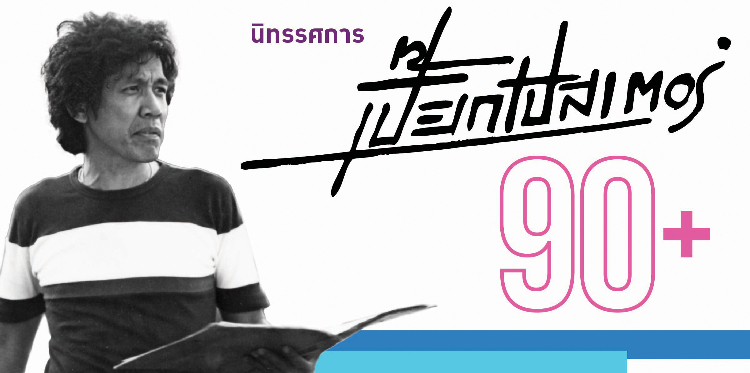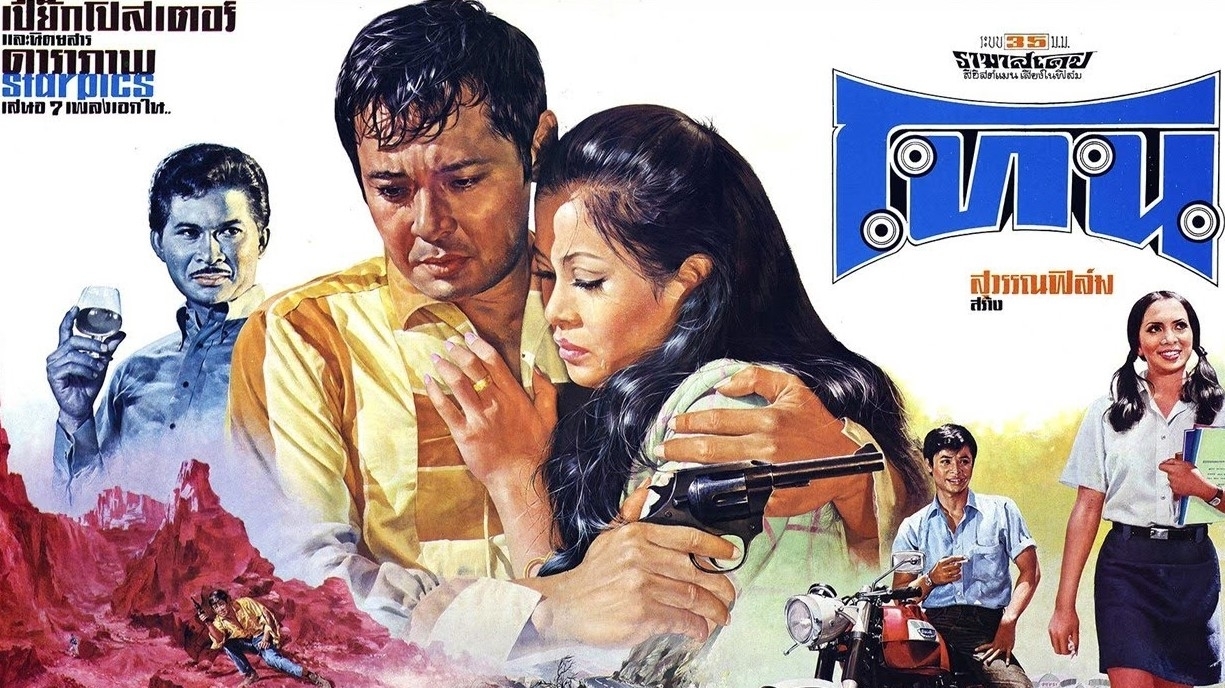
เปี๊ยกโปสเตอร์ 90+ (‘Piak Poster 90+’), an exhibition celebrating the ninetieth birthday of director Somboonsuk Niyomsiri, opened at the Thai Film Archive in Salaya on 18th October last year and runs until 19th March. The exhibition is accompanied by a retrospective of Somboonsuk’s films, culminating with screenings of his classic debut feature A Man Called Tone (โทน) on 7th and 19th March.
The release of A Man Called Tone in 1970 was a turning point in Thai cinema history. Filmed in widescreen 35mm, it marked the end of the 16mm era, a formulaic mode of production that had dominated the industry for the previous twenty years. Stylistically, its modern approach to characterisation, acting, narrative, music, and cinematography was equally groundbreaking. It was shown last year at Doc Club and Pub in Bangkok, though a gala screening at the Scala cinema in 2020 was cancelled due to the coronavirus pandemic.
The release of A Man Called Tone in 1970 was a turning point in Thai cinema history. Filmed in widescreen 35mm, it marked the end of the 16mm era, a formulaic mode of production that had dominated the industry for the previous twenty years. Stylistically, its modern approach to characterisation, acting, narrative, music, and cinematography was equally groundbreaking. It was shown last year at Doc Club and Pub in Bangkok, though a gala screening at the Scala cinema in 2020 was cancelled due to the coronavirus pandemic.

Somboonsuk, known as Piak Poster, is also one of Thailand’s most prolific poster artists, and those who emerged after him were either taught by him or influenced by his style. He ran his studio like a Renaissance workshop, creating posters bearing the master’s signature — effectively a brand logo for his studio — yet produced by apprentices under his supervision. The poster for A Man Called Tone, for example, is signed by Somboonsuk though it was painted by Banhan Thaitanaboon.
